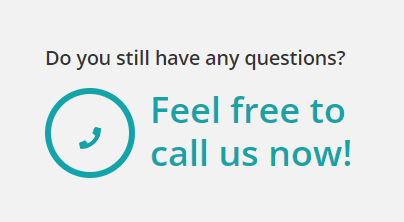- Home
- What is Sound Therapy?
- Children & Learning
- Autism Spectrum Disorder (ASD)
Autism Spectrum Disorder (ASD)
When ASD children have a more normal experience of the sensory world they can achieve better participation and relief from isolation.
Autism and sensory processing


When you are raising a child with autism, you search for anything that can help them to adjust and connect better to their environment. Raising special needs children is a very demanding task putting parents and families under a lot of additional stress. Finding ways to support your child to normalise their sensory reception is essential, and anything that can make this process easier will be a great support to your life.
Autism is a condition which alters a child’s experience of sensory stimuli and relationships. It often causes children to become emotionally isolated from the world around them. Aspergers syndrome is a term used for higher functioning autism, meaning the symptoms are milder and the child functions well or above average in many areas of life, while still having certain abnormalities in their way of relating to others.
A definite cause of autism or Aspergers syndrome is not known, but a contributing factor is believed to be distortion in the reception of sensory information. Many children on the autism spectrum exhibit extreme sensitivity to noise. Some frequencies are actually painful for them to hear.
Dr Tomatis suggests that in order to shut out painful sounds or other unwanted stimuli the child closes down the hearing mechanism so that certain sounds cannot penetrate the consciousness. On a physiological level, this closing off of the ear is achieved by a relaxation of the muscles of the middle ear. Over time, these muscles lose their tonicity. Sounds are then imprecisely perceived, and as a result, incorrectly analysed.
Tomatis believes that the reluctance to communicate in children with autism results from the closing off of their being to auditory input. Although they may understand what is said to them, they have tuned out many of the frequencies in the sound and have thus tuned out the emotional content of the message.
“Our son (who will be 11 in December) has Aspergers syndrome, nystagmus and an unusual gait. In April he started listening to the level one Sound Therapy program. Of his own volition he said the prog...”
Fiona Neilson – QLD - Read More
How Sound Therapy may help
Sound Therapy offers a child with autism the opportunity to re-open the listening capacity. The fluctuating sounds produced by the Electronic Ear gradually exercise and tone the ear muscles, teaching the ear to respond to and recognise the full range of frequencies. As this happens, communication takes on new meanings, and the child may begin to respond in areas where before he or she was unreachable. Tomatis discovered that because of the way the foetal ear develops the first sounds heard in utero are high frequency sounds. The child hears not only the mother’s heartbeat and visceral noises but also her voice. Re-awakening the child’s ability to hear high frequencies re-creates this earliest auditory experience and may enable emotional contact to be made with the mother first and then towards others. Various forms of sensory stimulation, and in particular Sound Therapy, have been found to improve sensory integration. As sound is one of the most vital systems for brain integration, the use of Sound Therapy may bring about significant change in the child’s ability to process and integrate sensory information.
How to use it
The child should be encouraged to listen to the program every day for a period of 30 to 60 minutes or more if desired. Both the music and the story albums are suitable for children with autism or Aspergers. For children who can speak, the Let’s Recite album in the Younger Children’s or Family Program has been a useful addition to the listening program, as it gives the child the opportunity to repeat what is said, encouraging participation, and vocal expression of the new range of frequencies being heard.
“‘My pain is not as sharp and my sleep is less. The colours are beautiful. They stand out heaps and are richer and brighter. Reading - there are more gaps in between the letters. They stand out ev...”
Larissa Amy, 13 year old girl with ADD and Higher Functioning Autism – Sydney - Read More
What it achieves


Children with autism have responded to Sound Therapy by showing a greater interest in making contact and communicating with the people around them. Interactions with their family members have become more affectionate and appropriate. There is often increased eye contact and the children have a longer attention span. They may initiate contact rather than waiting to be approached.
For children without language, vocalisation has increased, initially as screams and then as babbling. Children who can speak may develop a more appropriate use of language, for instance beginning to use more personal pronouns ‘I’, ‘you’ or first names, and using words to express their feelings. They may begin to laugh and cry at appropriate times. Once children have begun to emerge from their emotional isolation they have shown increasing responsiveness to what they are being taught and to the people who care for them.
Make an informed choice—get the eBook
After 26 years in the Sound Therapy field, we really understand the importance of giving children with autism every possible support to normalise their sensory processing. Every week we hear from our listeners thanking us for the benefits their children have found. Listeners have reported very dramatic changes in the way their children approach learning, social relationships and life in general.
If you would like to learn more in depth about how Sound Therapy helps those on the autism spectrum, order Rafaele Joudry’s FREE eBook here and benefit from her decades of experience helping thousands of children to learn better with Sound Therapy.
Or call and speak to one of our qualified Sound Therapy consultants right away.
Give your children the gift to accelerate their potential today!
Start Getting Relief Today
Click here to choose your package






